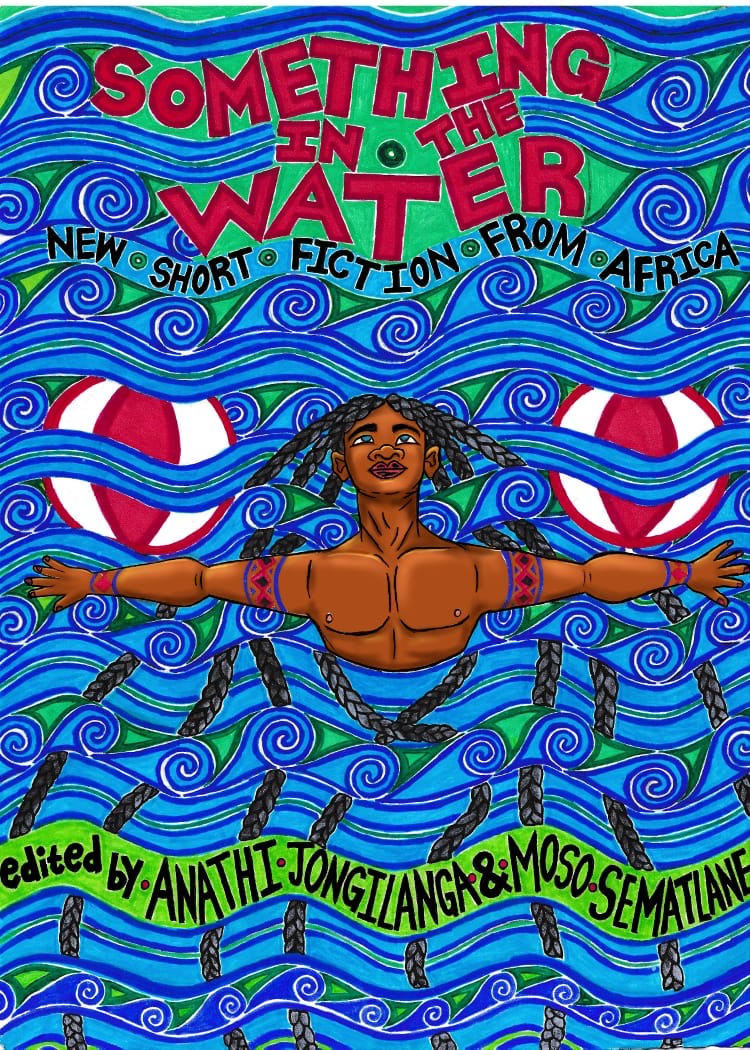
In 2019, Go the Way Your Blood Beats was released as the first part of the Blood Beats series. On Friday, Brittle Paper will be launching the new Blood Beats anthology, Something in the Water. Earlier this year, we gave you a small taste of what is to come when we published Msawenkosi Motolwana’s “The Teachers” and now the whole anthology is ready for you to enjoy.
When the talented South African writer and editor, Anathi Jongilanga, launched Go the Way Your Blood Beats in 2019, it was to serve “as a contribution to an ongoing conversation and as resistance: because we must write about queerness from a place of love, to bring to life queer characters who exist just for existing.” The anthology was a hit, featuring celebrate British-Somali author Diriye Osman and a host of brilliant, new voices. For the second anthology in the series, Jongilanga teamed up with Moso Sematlane, a Lesotho-based writer and filmmaker who was previously shortlisted for both the Commonwealth Short Story Prize and Gerald Kraak Award. The new anthology continues the conversation, making space for queer African experiences to be represented through a range of literary contexts. One of the organizing metaphors in this collection is water, which Jongilanga and Sematlane see as an image for situating queer experiences at the center of African life.
Beginning with the introductory words of Darlington Chibueze Anuonye, Something in the Water includes 15 brilliant stories. Each piece delves into various experiences and accounts of the queer existence, something so natural and vital to understanding life, just like water. However, like water, it can be tranquil and sustainable, or dangerous and rocky.
Leading up to the launch, Jongilanga and Sematlane are giving us a sneak peek into what’s to come by sharing their editors’ notes and the list of stories you’ll be able to read on Friday!
***
Editors’ Notes
There is something to be said about water as a mystic body from where all life is born. Something to be said, too, about water as the place our souls return to after their stay on earth. In some of our cultures, specifically here in Southern Africa, water is the site through which we contact our ancestors. But perhaps to talk about water is to also talk about freedom. Expansion. Refusing to fit into any specific shape or mould.
To us as the editors, this seems to be synonymous with a queer existence. It doesn’t escape our notice that even today, a queer existence is a policed existence. A criminalised existence. One beset with questions around who we are, why we were the way we are, and all the other subtle and overt ways society uses to punish us for refusing to fit within the ‘mould’. However, water, like art, is limitless. Queerness is limitless. And through art, we lay claim over our place in the world to say, we are here. We are queer. We have been here. And we will always be here. As old and as mutable as water itself.
— Moso Sematlane
When I was a child
I grew up by the River Lea
There was something in the water
Now that something’s in me
— ‘River Lea’ by Adele
These lyrics took up a lot of space in my mind when I lived at home in Ngqeleni, Eastern Cape. For reasons I can only rationalise to myself now, perhaps it stuck with me for a sentimental yearning I had to be anywhere other than my home at the time. Strange, considering some of the song’s lyrics. One night I thought, perhaps a little too optimistically – for I would go on to dismiss the thought the next moment – that I could curate another book of short stories from that phrase, ‘something in the water’. This was more of an escape for me as I tended to turn to fiction whenever I needed a ‘distraction’ from my life. I relied on it as I did on water to live. It wasn’t until a year later that I committed to the idea.
As time glided by, I started to have ideas of what I would like to see, to read, to produce. The kind of book that would fuse fantasy, myth, and realism, all the things I was interested in and those I grew to like in fiction. And at the centre of it all, narratives that follow queer characters in Africa – following the Go the Way Your Blood Beats anthology, the predecessor to this book in The Blood Beats Series. The writers that my co-editor Moso Sematlane and I ended up working with submitted to us stories that read as if they had seen my desired vision for this book.
— Anathi Jongilanga
***
Here is a look into each of the pieces you can read come Friday:
List of Stories in Something in the Water
“Garden Made of Water” by Ema Babikwa takes us on a journey of reckoning with the finding and losing of love, and the finality of death.
“Blue Skies, Warm Springs and Harmattan Winds” by Abeke Bello takes us into the life of Ileri who pockets different parts of her selves with the liquidity of water as she navigates her love affairs with Sunday and Hauwa.
“Water from a Stone” by Tebogo Manthata brings forth the spirituality and sensuality of water seen through a heart-breaking love story.
“The Calling of the Lake” by Keratile Moses Israel fuses myth and realism in a story of revenge and self-love, all the while navigating the dynamics of romantic relationships between gay men in the age of online dating.
“Skin” by Merle Grace is a tale of longing, desire, and searching for one’s true self. It reveals how the past haunts the present while the future is unknown yet hopeful.
“Cleansing” by Viola Konji illuminates the detrimental ways that religion’s distorted teachings can be weaponised on queer children. Water becomes a cleanser of sin, of thoughts that haunt the mind, rendering one to that place of wanting to ‘pray away’ and ‘wish away’, in pursuit of purity.
“The Smell of Water” by Rafiat Lamidi is made up of flash fiction-like passages that use water to tell a story of redemption, acceptance, and loss.
“A Pillowcase of Beans” by Hugo ka Canham is a painful account of violence and rejection in which we find a moving love story filled with joy, hope, and determination to fight for whom and what we love, even when sometimes evil still prevails.
“The Teachers” by Msawenkosi Motolwana is set in South Africa’s Eastern Cape. Interlacing myth, fantasy, and realism reveal the terrifying story of Zamani and Kamva’s encounters with the Matindane.
“Dissolution” by Raul Bimenyimana uses technology as a metaphor for water to weave a story of memory, remembrance, and resolution.
“Forced Apart” by Mathopa Moeti shows water as constructive in destruction. In a village, somewhere, a furtive love affair slowly, quietly unfurls, but its ending is as loud as it is disturbing.
“Floating” by Miriam Gayize introduces us to Ru, a journalist, and Yanira, a swimmer and model, while having their first date. Calling on introspection and trust, we experience the bloom of a love story that is at once moving, funny, and beautiful.
“Drift” by Caio Simões de Araújo warns that what meets the eye is not always the truth. In what could mistakenly be read as a deification of incest, we find a story that shows us different ways to love and the ways in which families can be built or destroyed.
“Moving Sands” by Lazarus Kgageng tells the tale of two orphaned boys, June and September. The latter taking on the role of his brother’s keeper, has to deal with chaos when Aubrey Masinga enters the picture.
“Wasted Salvation” by Thomas Alfred follows the narrator who has been shunned from his home. During his search for a new one, he finds a saviour in Bra Spensa but learns there is a price for everything. When survival is the only option, whatever can be done, must be.
Check back in on Friday when the next anthology of the Blood Beats series launches. If you’d like to check out the first instalment in the series, read here.


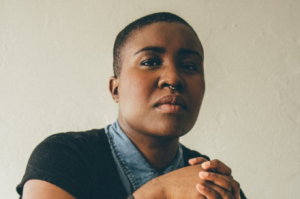
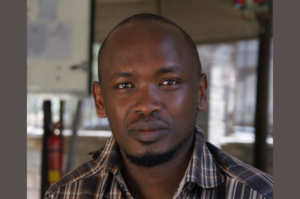
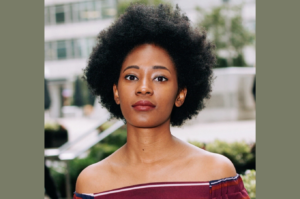
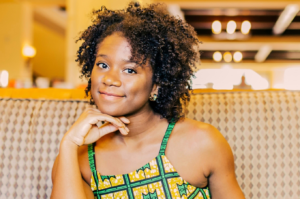
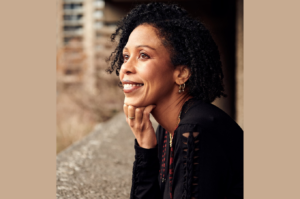
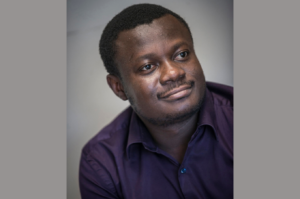

COMMENTS -
Reader Interactions